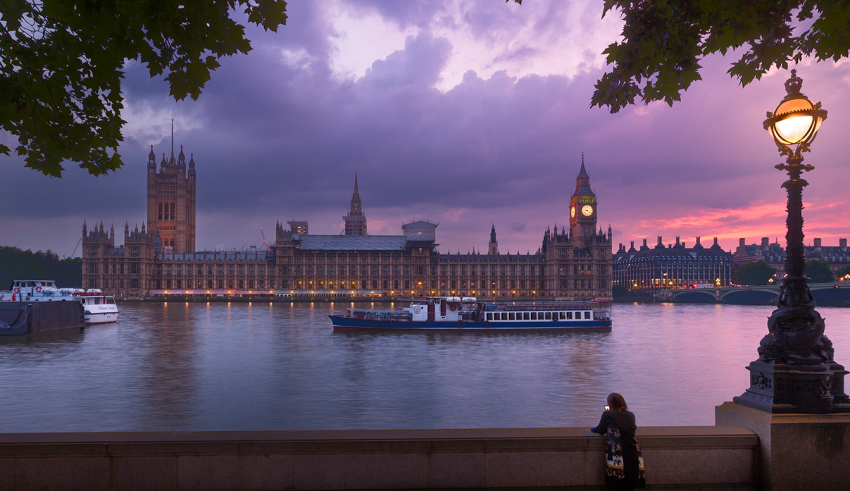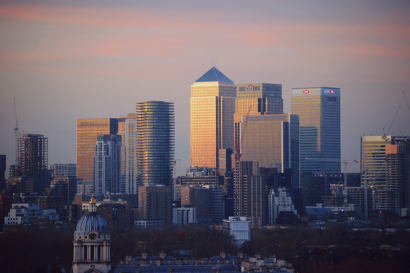PRESS RELEASES | 12/06/2020
Low carbon projects are a key solution to jobs, inequality and resilience concerns

Today, the Aldersgate Group launches a new policy briefing, Seize the moment: building a thriving, inclusive and resilient economy in the aftermath of COVID-19, showcasing a wide range of low carbon and environmental projects that could address some of the key economic and social challenges facing the UK following the COVID-19 crisis. From energy efficiency and charging infrastructure investments to hydrogen trials, green tech and wetland restoration projects, today’s briefing argues that low carbon and nature restoration projects can deliver key benefits in terms of employment, greater regional equality, long-term competitiveness and resilience.
The briefing contains a wide range of case studies from Aldersgate Group members including Anglian Water, BT, Johnson Matthey, Legal and General Investment Management, National Grid, Scottish Power, Tesco, TLT LLP, Triodos Bank and the RSPB [1]. It follows a recent letter sent by over 200 business leaders to the Prime Minister calling for an economic recovery aligned with the UK’s climate and environmental goals [2] and recommends key policies to deliver these types of projects on the ground.
Reacting to the publication of the briefing, Nick Molho, Executive Director of the Aldersgate Group, said: “There has rarely been a time when the economic, social and environmental agendas have been so closely aligned. It is clear from the case studies in our report that incentivising low carbon and nature restoration projects as part of the UK’s recovery plan could do much to tackle economic and social concerns around jobs, regional inequality, long-term competitiveness and resilience.”
Today’s policy briefing argues that an economic recovery focused on stimulating low carbon and nature restoration projects could deliver key benefits, including:
- Addressing regional inequality and unemployment;
- Strengthening the UK’s economic competitiveness and productivity through investment in the sectors and technologies of the future;
- Delivering critical public goods, including clean air, better health and improved resilience to future environmental shocks;
- Building a more resilient financial system fit to withstand future climate shocks;
- Delivering the Global Britain agenda by strengthening the UK government’s influence ahead of the G7 and COP26 summits that it will be hosting in 2021 and enabling UK businesses to be competitive providers of low carbon goods and services.
Nick Molho added: “Putting an ambitious environmental and climate agenda at the heart of the UK’s economic recovery need not be overly reliant on public money. Targeted public investment will be important to support early stage innovation in areas such as hydrogen and carbon capture and storage but a lot of the heavy lifting can be done through the introduction of clear public policy signals to attract private sector investment in areas such as energy efficiency, charging infrastructure and natural capital projects.”
Peter Simpson, Chief Executive, Anglian Water, said: “The need for economic recovery from COVID-19 in the face of the ever more pressing climate emergency presents business leaders not just with an opportunity to create a fairer, more sustainable future, but a responsibility to do so. I believe we can recover from this pandemic in a way that brings economic, environmental and social prosperity. We stand ready to work with government and our communities on a resilient, low carbon future that leaves nobody behind.”
Andy Wales, Chief Digital Impact and Sustainability Officer at BT, said: “As we emerge from the crisis caused by COVID-19, government, businesses and policymakers must put action on climate at the heart of their efforts to revive the economy. BT is stepping up on climate action by backing new green technologies through our Green Tech Innovation Platform and by investing in the UK’s digital infrastructure. We want to encourage and help others to do the same – creating a more sustainable, resilient, low carbon economy.”
Martin Casey, Director Public Affairs Europe at CEMEX, said: “Aligning the economic recovery package with the UK’s net zero emissions goal presents great opportunities for CEMEX. Reducing emissions is not limited to our production process but to the whole life cycle of our products and we have committed globally to reach net zero concrete by 2050. We are committed to continue reducing our direct and indirect emissions in our processes, both through the maximization of the traditional CO2 reduction levers and through implementing Carbon Capture, Utilization and Storage (CCUS) and other carbon innovative technologies. Our aim is to enable the development of climate-smart urban projects, sustainable buildings and climate resilient infrastructures. Setting a clear policy direction for restarting the economy will enable the private sector to play its part in the recovery in a way that advances our climate and environmental goals.”
Steve Andrews, CEO at Earthwatch Europe, said: “It is heartening to see so many organisations calling on Government to ensure a fairer, greener recovery post-COVID-19. Let’s hope they’re listening. If COVID-19 and lockdown have taught us anything, it is the need to take science seriously and for Government to focus now, with urgency, on threats that seem beyond the electoral cycle.”
Andy Walker, Technical Marketing Director at Johnson Matthey, said: “As this policy briefing outlines, the government has a “historic opportunity” to accelerate the transition to a low carbon and environmentally resilient economy as it develops and implements its strategy to recover from the COVID-19 crisis. Since the Climate Change Act was passed, the UK has successfully demonstrated that economic growth can go hand in hand with emissions reductions, further supporting the widely held view that measures which cut greenhouse gas emissions and stimulate the economy can be extremely effective in supporting jobs and economic growth. This “Build Back Better” approach has the additional benefit of putting the UK on track to deliver our 2050 net zero commitments, strengthening our leadership and influence at the upcoming COP26 and G7 summits, as well as generating lasting social, competitiveness and resilience benefits.”
Alexander Burr, Global ESG Public Policy Analyst at Legal and General Investment Management, said: “The UK government is faced with a unique opportunity to show that we are not returning to ‘business as usual’ through a recovery package that accelerates green economic growth. Over recent weeks, businesses and investors have been pledging their willingness and support for this agenda. The government should build on this foundation, bringing forward mandatory climate reporting and broadening its reach. Investors like LGIM need greater transparency and comparability from companies on their climate-related risks and opportunities, to direct capital into ‘green’ projects at scale. As we have seen lately, there is such a thing as being too late – it is time to act now!”
Keith Anderson, CEO of Scottish Power said: “There is now a compelling case for accelerating investment in a cleaner, greener society to deliver positive outcomes for both the economy and the environment. Positive outcomes that will benefit all of us thanks to cleaner power, cleaner home heating and cleaner transport. We must make our recovery green – delivering the much-needed jobs and investment that will get people, businesses, towns and cities back on their feet while cleaning up the environment and decarbonising the economy. The government cannot let this moment pass the country by.”
He added: “We’re proud to be at the forefront of developing green infrastructure projects that will do just that. For example, partnering with Scottish Government and Scottish and Southern Electricity Networks to support the shift to electric vehicles in a way that will ensure fair and equal access for all. Developments like this will be a real game-changer in moving us closer to net zero – as well as supporting the economy – and that’s why the two can, and must, go hand in hand. Only by doing that can we all achieve a cleaner and greener future – a better future – quicker.”
Maria Connolly, Head of Clean Energy & Real Estate at TLT LLP, said: “The positive impact that the last few months have had on the environment means that as we’re looking forward the question that’s being asked is, could a green recovery bolster the economy and accelerate our drive towards net zero by emphasising sustainable business practices and modern green industry over more traditional carbon intensive sectors? An economic recovery which places an ambitious environmental and climate agenda at its core would, without a doubt, also refocus growth, policy development and funding. While the backing of the financial sector is needed to achieve this vision, for many banks and funders clean energy assets are still viewed as a stable investment, and if you consider the upscale in clean energy generation – an estimated 90GW of wind energy, 80GW of solar power and 30GW of energy storage – that will be required to achieve net zero then this represents an exciting opportunity to drive economic growth by creating jobs and developing local supply chains based on clean energy.”
Bevis Watts, CEO of Triodos Bank UK, said: “We now have a window of opportunity, as we seek to overcome the challenges of the coronavirus crisis. A recovery should seek to increase resilience across all areas of society and focus on shaping a more inclusive and low carbon economy. Triodos has always been a pioneer in sustainable finance – most recently we have been looking at linking the economic and societal benefits we take for granted from nature to real investment in its restoration. We need collaborative action to develop an economy linked to societal health and environmental limits and require a financial sector that proactively looks for solutions to achieve that. Simply a move to avoiding harm is not enough.”
Julia Barrett, Chief Sustainability Officer at Willmott Dixon, said: “We welcome this briefing from the Aldersgate Group, and believe that putting an ambitious environmental and climate agenda at the heart of the recovery will ensure that the UK economy is more competitive in the long-term whilst being more resilient to future risks. We believe that by investing in a nationwide retrofit programme supported by clear policy signals, government could deliver rapid localised job creation, whilst addressing the social inequalities associated with fuel poverty and poor health associated with living in cold homes. This is an essential step on our journey to net zero emissions as 80% of the buildings that will exist in 2050 are here now.”
Darren Moorcroft, CEO of the Woodland Trust, said: “A resilient economy and society require a resilient environment. This welcome work by the Aldersgate Group shows how vital it is that we seize this moment and ensure that actions to reboot the economy set us firmly on the road to net zero and show world leading ambition when it comes to restoring our natural environment. Protecting, restoring and expanding native tree cover – with all the social, economic and environmental benefits that will bring – belongs at the heart of any ‘green recovery’ worthy of the name. The Woodland Trust has a powerful record of delivery and stands ready to play its part – working alongside business, government and our NGO partners to help transform our nation into a better place for people and wildlife.”


